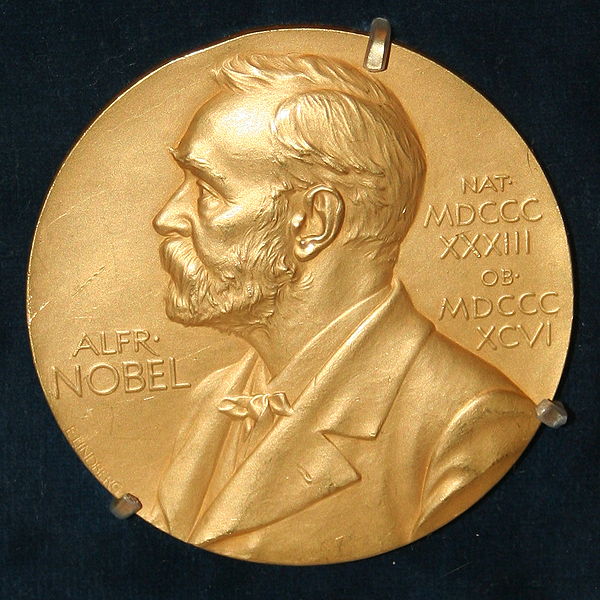Today’s Nobel Prize is not immune to developmental biology
Posted by Eva Amsen, on 3 October 2011
 This year’s Nobel Prize in Physiology or Medicine has just been announced, and the winners are Bruce Beutler (The Scripps Research Institute), Jules Hoffmann (University of Strasbourg) and Ralph Steinman (Rockefeller University), for their research on the immune system. [Update 14:04: Just heard that Ralph Steinman died of pancreatic cancer this weekend. Committee still deciding whether to give him the award – they are not given posthumously, but committee picked winners before he died.]
This year’s Nobel Prize in Physiology or Medicine has just been announced, and the winners are Bruce Beutler (The Scripps Research Institute), Jules Hoffmann (University of Strasbourg) and Ralph Steinman (Rockefeller University), for their research on the immune system. [Update 14:04: Just heard that Ralph Steinman died of pancreatic cancer this weekend. Committee still deciding whether to give him the award – they are not given posthumously, but committee picked winners before he died.]
Steinman discovered dendritic cells, while Beutler and Hoffmann studied the genetics behind immunity. At first glance, it does not seem to be directly related to developmental biology, but a closer look at Hoffmann’s and Beutler’s work in particular suggests differently:
Hoffmann started out studying developmental biology, and early in his career he researched the role of steroid hormones on insect development. However, if you look at his publication history, it shifts toward immunology in the mid-eighties. In 1987 he still published on locust development, but just a year later he had a paper on insect immunity, followed by many others.
Even when Hoffmann focused predominantly on immunology later in his career, developmental biology found a way to catch up with him.
In a 1996 paper in Cell, Hoffmann’s lab showed a connection between Drosophila development and immunity. Specifically, they found that Toll signalling pathways was involved in antifungal defence in flies. While Toll was already known at that point for its role in dorsoventral patterning, thanks to Christiane Nüsslein-Volhard’s work, Hoffman was the first to identify the role of Toll in the fly’s innate immune response. Soon after this, other groups, including Beutler’s, identified Toll-like receptors in mammals.
That’s not the only developmental connection to this year’s Nobel Prize. Of course, to have a functioning immune system, you need to form the components of that system, and this has been a recent area of interest for Nobel Laureate Bruce Beutler. A Nature Immunology paper from earlier this year describes the requirement of the ATPase ATP11C in B cell development in adult (but not fetal) bone marrow. The paper describes the identification of X-linked mutations in mice that interfere with B cell development, and linked the phenotype to recessive mutations in Atp11c, which encodes a P4-type ATPase. The precise molecular pathways by which ATP11C regulates B cell differentiation are yet to be determined, showing that even for Nobel Prize winners there is always more left to be discovered…
References:
LEMAITRE, B., NICOLAS, E., MICHAUT, L., REICHHART, J., & HOFFMANN, J. (1996). The Dorsoventral Regulatory Gene Cassette Controls the Potent Antifungal Response in Drosophila Adults Cell, 86 (6), 973-983 DOI: 10.1016/S0092-8674(00)80172-5
Siggs, O., Arnold, C., Huber, C., Pirie, E., Xia, Y., Lin, P., Nemazee, D., & Beutler, B. (2011). The P4-type ATPase ATP11C is essential for B lymphopoiesis in adult bone marrow Nature Immunology, 12 (5), 434-440 DOI: 10.1038/ni.2012


 (2 votes)
(2 votes)